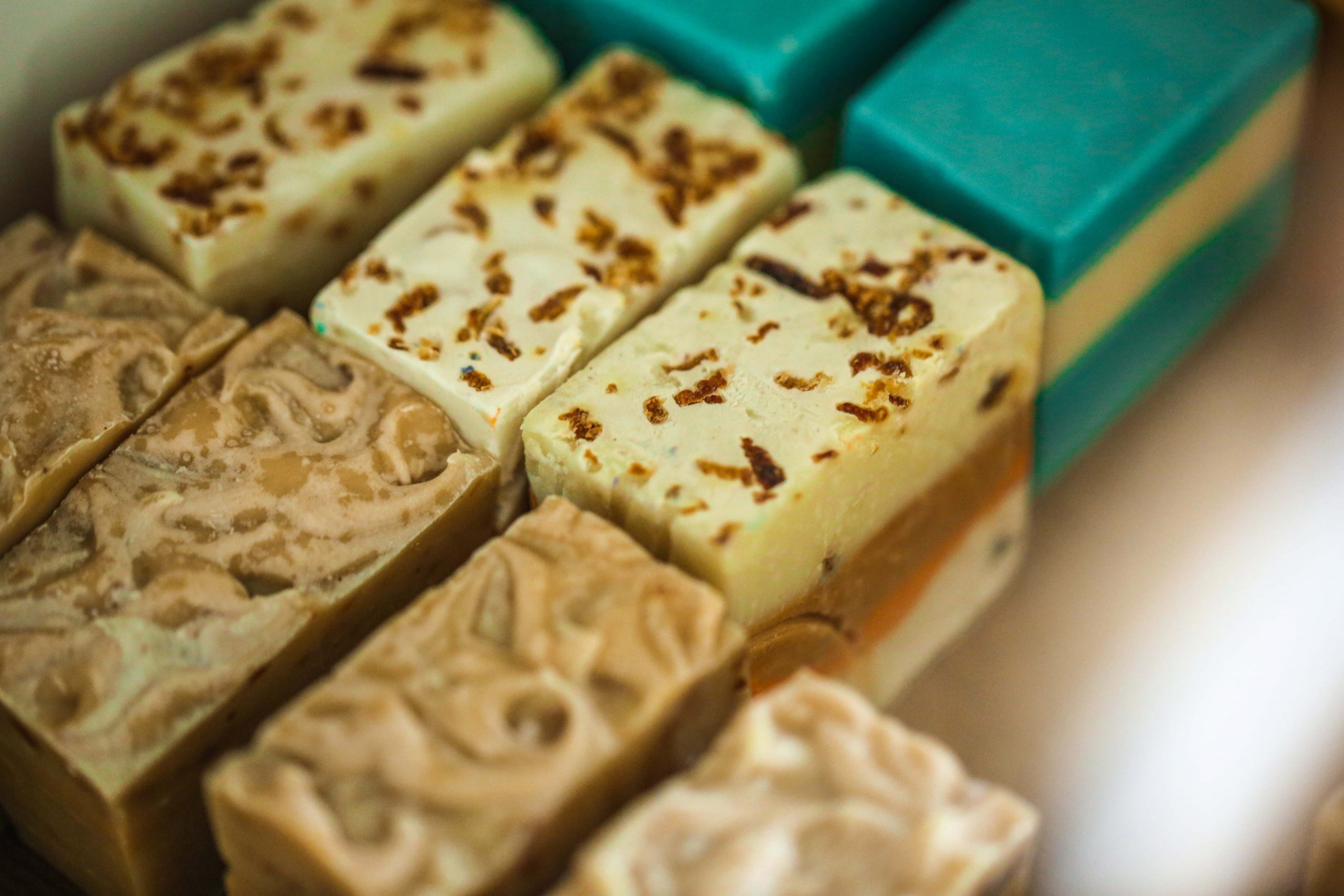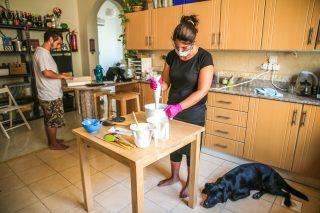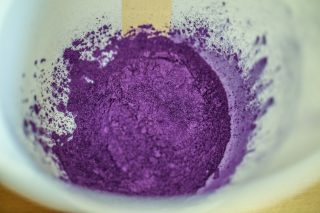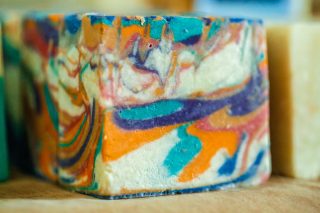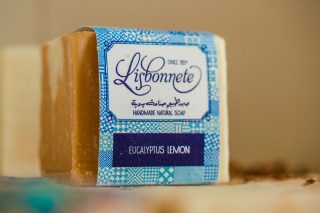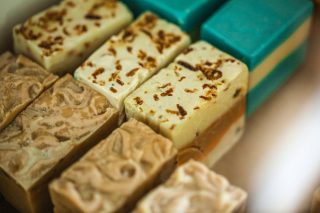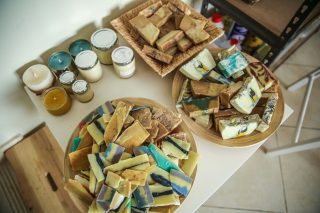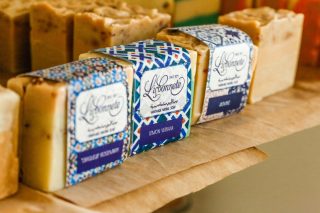All photos by Chantelle D’mello
An expat couple has started one of Qatar’s first all-natural homemade soap lines, tapping into a growing market for sustainable and locally-produced wellness products.
Inspired by their native Portugal, husband and wife team Celso and Sofia Batista created Lisbonnete, an organic line of soaps produced in their own kitchen, late last year.
The project is the brainchild of Sofia Batista, a former open-water swimmer, current physical education teacher at Compass International School and a long-time practitioner of aromatherapy and natural therapy.

Speaking to Doha News, her husband said the couple dabbled in soap-making back home, and decided to become more serious about it after moving to Qatar.
“The name is a play on words. In Portuguese, the word for soap is ‘sabonete,’ and the capital is Lisbon…so we get ‘Lisbonnete,’ ” Celso Batista added.
Because of Qatar’s high temperatures and humidity, perfecting the recipe for the soap took some time, the 43-year-old said.
“There was a lot of trial and error and math involved in the process. Even now, for every 10 kilos of soap we make, there’s one batch or one kilo that doesn’t go right for some reason or the other. It’s a learning process,” he added.
Once they settled on a recipe, the duo decided to test their products on friends and colleagues, whose feedback they then incorporated.
Process
Making a bar of soap is a two-hour long process that mainly involves mixing, melting and stirring.
Using a carefully guarded recipe, Sofia Batista – clad in goggles, a face mask and a pair of gloves – melts butter, beeswax and oil over a flame, bringing the mixture to a liquid consistency.

To this, she adds a mixture of lye, a strong alkaline solution consisting predominantly of potassium hydroxide that gives homemade soap its cleansing properties, with water.
The lye facilitates the process of saponification, the technical name for what happens when lye and the fatty acids in the butters, oils and wax react.
Natural pigments and clay for color, essential oils for healing and aroma and dried herbs for texture are then added.
Once done, the mixtures are poured into silicone moulds using various techniques like swirling and layering to get different textures and color patterns.
The finished product is then made to rest for anywhere between four to six weeks to ensure that the chemical processes run their course and that the soap hardens.
Sustainability
In an effort to give back to the local economy, the couple tries to source most of their products locally.
“You’d be surprised at what you can find in your local grocery store or if you really look here,” 40-year-old Sofia Batista said.

Base materials like palm, olive, coconut and avocado oils, beeswax and shea butter are usually bought from local grocery stores, while the Batistas source herbs like jasmine and lavender from the souqs.
“Essential oils were the one thing that wasn’t available here. There’s a store that sells them, but it’s way too expensive and the quantities are too small for what we need. So we decided to look for other sources, and now we import the oils (by the cannister) from India,” Sofia Batista said.
Natural pigments and other special herbs are also imported, mostly from Portugal, or are grown by the couple.
Growth strategy
Like most small business owners and entrepreneurs, the duo uses Instagram to market their products and Whatsapp for taking orders.
To gauge their customer base, the couple also tries to participate in various handicraft fairs organized by Virginia Commonwealth University in Qatar, Doha Mums and other organizations.

Currently, the couple makes more than 15 types of soap, including jasmine, lavender and cinnamon-scented bars. But Celso Batista said they are considering narrowing down their offerings to one standard menu.
He added, however, that the couple does cater to special requests. Certain locals, for example, have asked for aroma combinations with elements of cedar and sandalwood, oud and patchouli.
The Batistas have also begun exporting their products.
“Through a friend, we’ve starting selling our products in Lebanon. We’re (also) trying to sell our products in the UK and Portugal now, so we’re in talks with a chemical engineer who will be testing our products to ensure quality control and that everything is safe,” Celso Batista said.
The market, he added, was substantial, as the duo is the one of the few who make soap in Qatar.
However, with less than a year of experience behind them, the couple hasn’t yet sought to register their small business, but plan to do so in the future.
Like many entrepreneurs in Qatar, the couple sees the large amount of paperwork and high financial investment required to register a company in Doha as obstacles that substantially hinder their progress.
“We’re planning on expanding in the future, maybe, but it’s a lot of work. Owning a store is out of the question because it’s so expensive, but we would love to reach out to stores and sell our products there,” Celso Batista said.
Soaps aside, the duo has also begun experimenting with selling homemade candles, lip balms, creams, bath salts and bath bombs. All products retail for between QR20 to QR30 per piece.
Thoughts?

